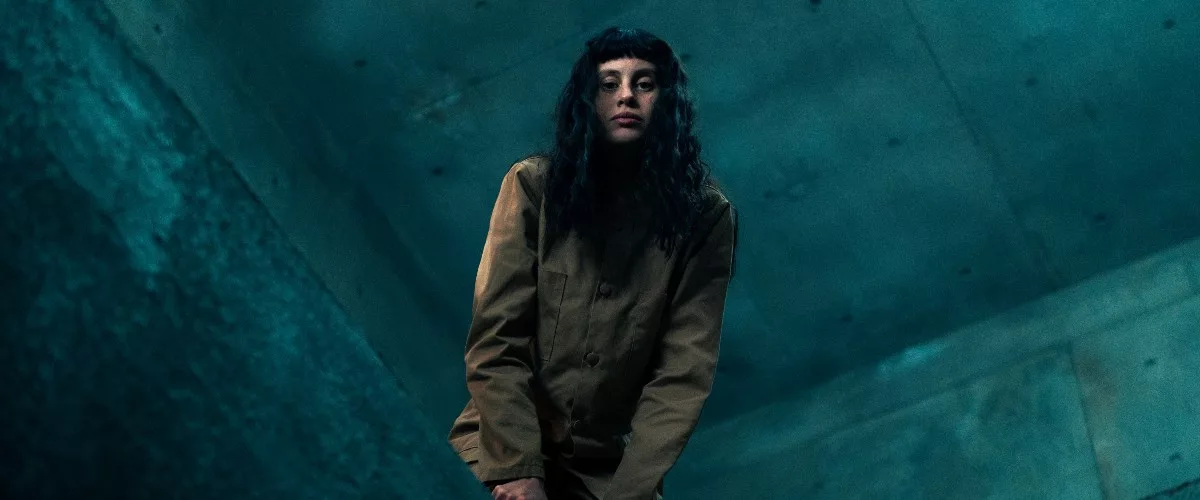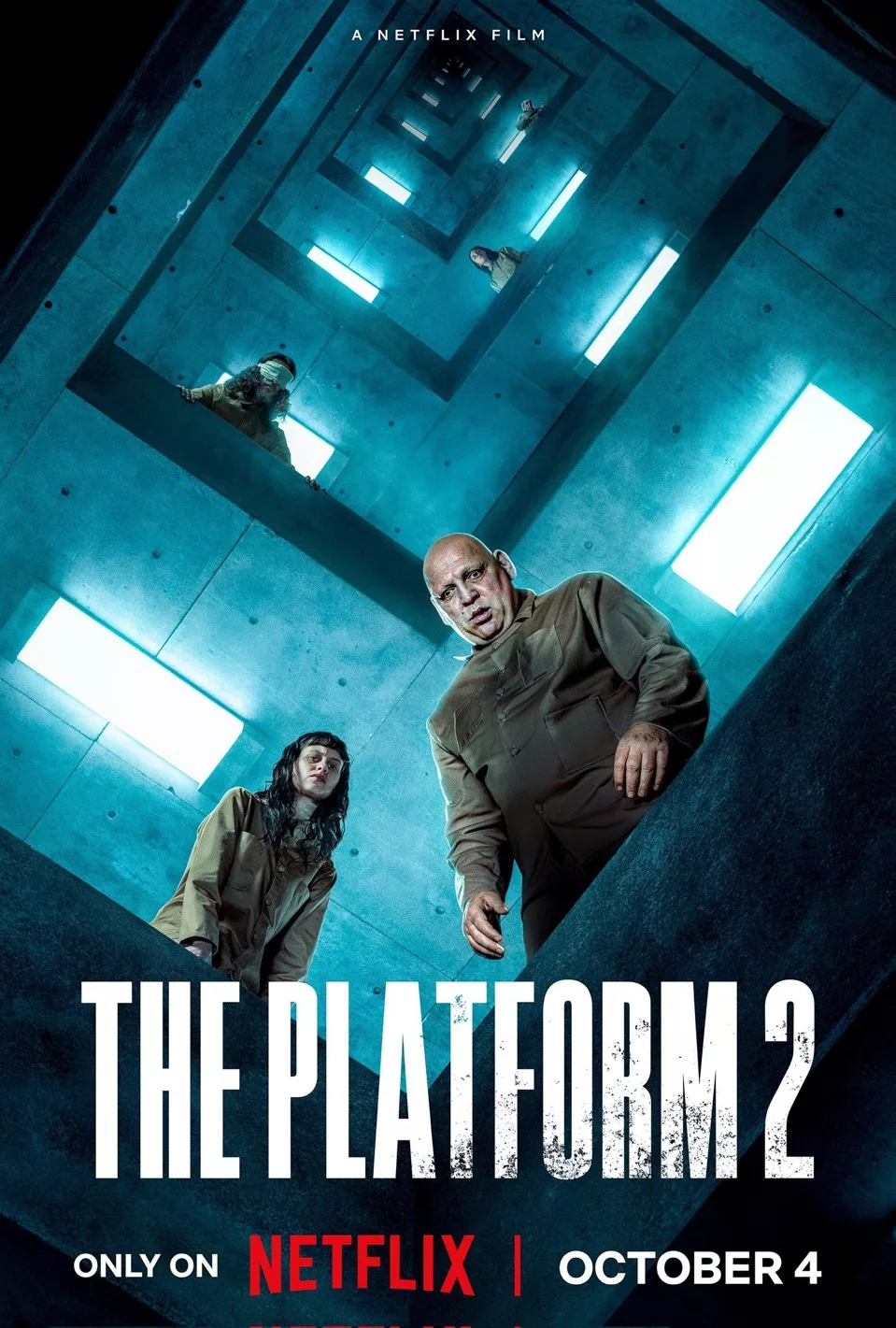There was probably no bigger hit of the pandemic than the Spanish language dystopian thriller “The Platform.” In that film, the incarcerated, confined to hundreds of levels of individual concrete cells as they await a floating giant slab of food, felt not too dissimilar from the confined existence many experienced while living through the virus. It was a surprising cathartic gift during those lean months. Coming back to that perfect idea would seem like a mistake. Within the first half an hour of director Galder Gaztelu-Urrutia’s “The Platform 2,” it’s apparent that this return is indeed a grave error.
The mechanics of this world are the same. The incoming prisoners, who all have different reasons for being there, are given the choice of what they will eat every day and a personal item to comfort or protect them. Every month, they switch from one level to the next. The higher levels are better and provide more food. The lower reaches promise starvation. There are some additional wrinkles. When Perempuan (Milena Smit) awakens, she finds the hulking Zamiatan (Hovik Keuchkerian) occupying her cell, too. They’re on level 24. She eats croquettes, and he eats pizza. The veteran inmates above and below have attempted to install what they believe is an equitable system: You can only eat your chosen food; you must not eat the food of those who have perished; the only way you can eat a different item is if you trade with someone else. That system, however, proves to be deeply flawed.
Similarly, these new plot devices aren’t enough to breathe much life into the concept. Rather this follow-up not only feels like more of the same, it’s also dulled the prior film’s sharpness. The entire film is far too confusing. It takes too long to discover why Perempuan is here. The enforcers of the system, known as Loyalists and guided by a blind and vicious Anointed One known as Dagin Babi (Ken Appledorn), are an equally opaque group. Apart from their desire to keep law and order, it’s unclear what their motivation is for so violently perpetuating this system. There is, of course, the religious component–messiahs, demonic figures, and allusions to varying circles of hell—but they play as broad symbols rather than incisive world-building.
Because of the inconsistency of the story, you can’t tell what the film is arguing. Is it about how even equitable systems can lead to cold crackdowns? Or might it be critiquing the COVID lockdowns, claiming that puritanical isolation infringed on people’s rights?
In any case, “The Platform 2” suffers from only offering more of the same. Before long, it taps a character from the first film, rehashes the already worked-over premonitions and metaphors from the first film, and even tries to neatly tie both works together through a ham-fisted post-credit scene. None of it is enough to conjure the same magic. Instead, this film needed to build out its lead character more—Perempuan is nothing more than a drawn-out cipher—and to vary its visual language. While the first film was fantastic at leveraging the confined space for natural rivalries and psychological angst, this one overly relies on close-ups, appearing repetitive in the face of a sludge-colored environment.
Neither the tacky ending nor the very existence of this second installment is earned. Instead, it languishes as the squeezing of the final drops of a once bright idea. It probably would’ve been better if “The Platform 2” had simply remained locked away.
On Netflix now.




















